 Iran’s Attack on Israel
Iran’s Attack on Israel
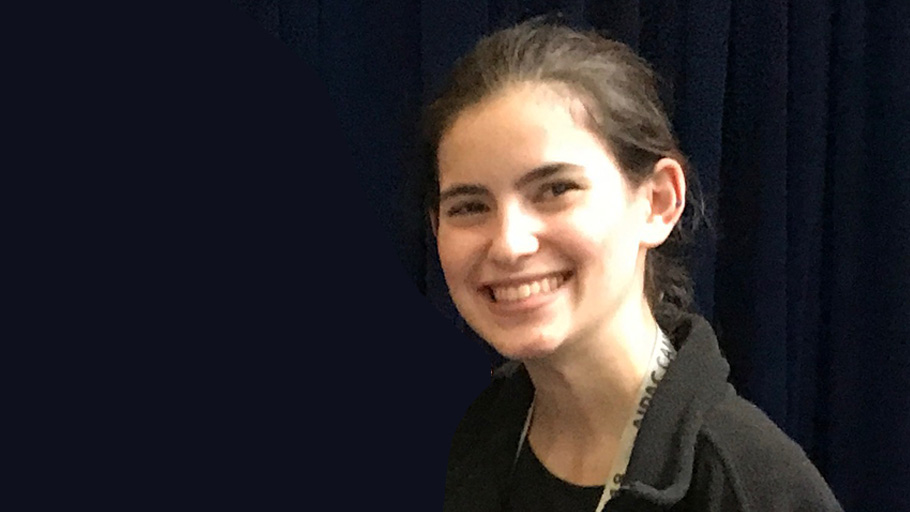

9 min read
Shanee Markovitz, 19, is working to stamp out the stigma of mental illness.
Two years ago, a 17-year-old Shanee Markovitz woke up one hot summer morning to discover that her mother, Sharon, had ended her life by suicide.
Standing barefoot in her pajamas in front of their Hollywood, Florida home, Shanee faced a driveway full of police cars and a mass of confusion. In the moments that followed, a rabbi, a psychologist, and two family friends took Shanee and her father aside and said: "Anything you say, you can't take it back. Maybe it's best to tell everyone this was caused suddenly or by a heart attack."
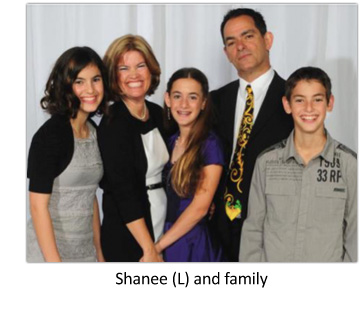 Shanee and her father looked at each other and declared: "No, we're not doing that.” They knew this was a health problem and that lying about it wouldn't benefit anyone.
Shanee and her father looked at each other and declared: "No, we're not doing that.” They knew this was a health problem and that lying about it wouldn't benefit anyone.
Shanee tells Aish.com: "They were trying to protect us from stigma and scrutiny. On the worst day of my life, I was offered silence. Yet silence was everything that led up to this horrifying moment."
On the worst day of my life, I was offered silence.
Thrust into the spotlight, Shanee – articulate, poised and with a maturity that belies her 19 years – took on the role of speaking out against the stigma and shame of mental illness. Her Facebook posts, op-ed in The Forward, and speech at Yeshiva University entitled, "Stomp Out the Stigma," all went viral. Shanee was chosen by the New York Jewish Week as one of American Jewry's outstanding young personalities.
The issue of suicide is growing ever-more severe; over the past two decades the US suicide rate in has increased 25%. Recent high-profile suicides – Robin Williams, Kate Spade, Anthony Bourdain – have spotlighted the issue. But the social stigma remains, including in the Jewish community.
"I always knew that mental illness was taboo, but I didn't realize to what extent," Shanee says. The reality became clear while sitting shiva for her mother. "Literally dozens of people opened up and told me: 'This happened in my family, too, but we don't talk about it,' or 'I can't tell you how my grandfather passed away, but your story is very similar'."
In the time since, Shanee has become a trusted face of the movement to break the taboo of mental illness. "Hundreds of people have come forth to share their deepest, darkest secrets," she says, and on various occasions she has guided suicidal people to receive help.
What happens if the person shares their struggle, but refuses to get help? Should you betray their trust?
When you have a life in your hands, it doesn't matter whose feelings will be hurt.
"I think there's a line to be drawn," she says. "If someone doesn't pose a threat to themselves or others, then maybe we shouldn't be the moral judge. But in self-harm or life-threatening situations, never promise to keep it a secret. When you have a life in your hands, it doesn't matter whose feelings will be hurt. That's something you don't mess around with."
Shanee says that she once had to go behind someone's back to get them help. "They ended up appreciating it. It's always better to be safe than sorry. In Judaism, there's almost nothing we don't do to save a life."
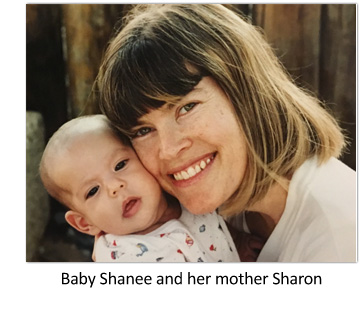 Following her mother's suicide, Shanee suffered full-fledged post-traumatic stress disorder (PTSD), which manifested as extreme anxiety, uncontrollable shaking, and choking. For months she barely slept; recurrent nightmares left her shaking and gasping for air. "At the beginning I couldn't even be left alone in a room," she says. "I cried a lot in public and could not handle crowds. I would shut down and just focus all of my energy on existing."
Following her mother's suicide, Shanee suffered full-fledged post-traumatic stress disorder (PTSD), which manifested as extreme anxiety, uncontrollable shaking, and choking. For months she barely slept; recurrent nightmares left her shaking and gasping for air. "At the beginning I couldn't even be left alone in a room," she says. "I cried a lot in public and could not handle crowds. I would shut down and just focus all of my energy on existing."
Shanee engaged in intensive therapy, specifically EMDR (Eye Movement Desensitization and Reprocessing), recognized as a leading treatment for PTSD. "Therapy isn’t just a lot of talking," she says. "It’s committing to changes in behavior and relationships. It's rebuilding the way your brain works."
Shanee was born in Eilat, Israel, to two Israeli parents. In 2005, the family moved to the US to pursue business opportunities. For years, hiding untreated depression, Shanee's mother put on a facade. "Even at our worst times, she presented a smile, perfectly normal and happy," Shanee says. "The external was a mask for the internal. She thought she was shielding us from sadness. In the meantime, her illness went undiagnosed."
It is estimated that 20 percent of the US populations suffers some form of mental illness – and over half of those do not get treatment. Untreated depression is the number one cause of suicide. Globally, over 800,000 people die each year to suicide, the second-leading cause of death among 15-29-year-olds.
Why are mental health issues looked at so differently than physical illnesses like diabetes or cancer?
"It's scarier, because it's in the person's head," Shanee says. "Unlike, for example, a physical disability, you can't see it happening. Without a community to openly connect with, you don't know that others are experiencing the same thing. So it's more lonely and isolating."
Shanee says that while a Jewish lifestyle has mental health benefits, this advantage may be balanced by a reluctance to bring these issues out into the open. Especially in the Jewish community, where family reputation is closely guarded, people may not as readily receive the help they need.
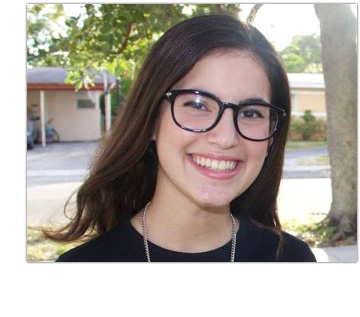 Shanee has hope for removing the taboo. "Years ago many physical illnesses were taboo as well," she says. "Yet we've grown as a society and come to terms with that reality. With mental illness as well, I believe we're moving in the right direction."
Shanee has hope for removing the taboo. "Years ago many physical illnesses were taboo as well," she says. "Yet we've grown as a society and come to terms with that reality. With mental illness as well, I believe we're moving in the right direction."
What does Shanee's family say about this very public stance on the issue of mental health?
"From the very beginning, my father has been fully supportive," she says. "He's not a public speaker, but he gives me suggestions and likes to watch me speak. He's encouraged by the positive impact my speaking has had."
Shanee encourages everyone to help break this taboo – whether reaching out to a friend, or writing about it anonymously. "Opening up to another person, either asking or offering help, is so powerful, it literally saves lives," she says. "Everyone needs to assess their own skills and opportunities in the grand scheme. We all share responsibility."
Shanee says that she learned from Marc Fein, an NCSY director and mental health advocate, six important words that can save a life:
Yet almost everyone has periods of sadness, or even depression. How can we identify when it's crossed the line into something that requires intervention?
"Don't ignore the red flags. Do a check-in: 'Are you okay?'"
"You know your friends and family, so you can often tell if something's off," she says. "Too often we ignore the red flags. Look for changes in behavior – cryptic hints or jokes about self-harm, or just putting yourself down. Maybe they feel a heavy weight on their shoulders, and maybe it's affecting their school, work, relationships, and favorite activities. Don't just laugh along or brush it off as 'they're having a bad day.' In any situation of doubt, it's always best to just do a check-in and ask: 'Are you okay?'"
It sounds so simple. Why don't people ask more often?
"A lot of the time we're scared to hear the answer," she says. "We're uncomfortable opening up the pain of their struggle. And we feel unequipped to 'solve' their problem."
The answer, Shanee says, is to simply direct them to a proper resource. "That way our discomfort can be compartmentalized, and we can focus more on getting them help."
Shanee describes what to do when someone unloads their private pain.
"First, be quite and listen. Encourage them to open up: 'You are important to me.' Yet be careful where to press and where not to press; leave that to the certified professionals.
"Second, assure the person: 'I'll help you get help, and I'll stick with you throughout the process.' Let them know you care about them. Keep being their friend, even when it’s hard.
"Third, assure them that others are in the same situation. Tell them: 'You are not alone, and I’ve seen people recover. You can do it, too.' This is often the key piece that people haven't heard, and it's a big relief."
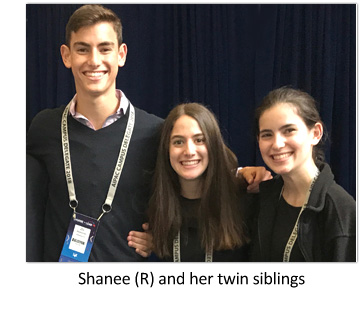 Shanee has just completed her first year at Stern College in New York, studying political science. "I considered psychology but decided it wasn't for me. My strength is my personal story," she says. "Speaking up about mental health is part of my healing journey and will continue to be a big part of my life – just not as a 'career'."
Shanee has just completed her first year at Stern College in New York, studying political science. "I considered psychology but decided it wasn't for me. My strength is my personal story," she says. "Speaking up about mental health is part of my healing journey and will continue to be a big part of my life – just not as a 'career'."
Soon after Shanee went public, she became involved with Refuat Hanefesh, a non-profit organization dedicated to raising awareness of mental health issues in the Jewish community. Refuat Hanefesh also serves as a safe space where people can get help anonymously, without fear of being judged, from those who understand Judaism's cultural and religious nuances.
In her YU speech, Shanee declared:
"So long as there are those who fear to lose their jobs, fear to lose their prospects of someone marrying or loving them, fear that they will be shunned from institutions, friendships, and communities, we are not doing enough yet. Too many people feel alone. Too many feel the darkness outweighing the light. We can do better, we must do better. We must not accept a world where a mom is too scared to tell someone that she does not want to live, out of fear that she will get looked down upon."
As for her own future, Shanee is writing various pieces about mental health, and hopes to continue sharing her story at universities and synagogues. "We all need to keep in mind what we are worth and deserve. Despite my challenges, I am not willing to give up my functionality, my trust in the people I love, and my ability to be a loving and capable mother in the future," she says with determination.
"Let’s break this piercing silence, this veil that forces people to hide their struggles and not seek help. With our voices and our empathy, we can stomp out this stigma."
